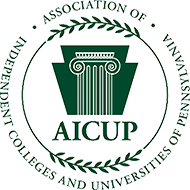Advances in technology, as well as the COVID-19 pandemic, have led to a significant increase in the number of distance education courses offered by colleges and universities across the United States. These online courses provide students with greater access to higher education and with more flexibility in how they attend classes. Colleges and universities also benefit by being able to enroll students from anywhere in the United States or from other parts of the world.
However, before a college or university can enroll out-of-state students in online courses (or offer fieldwork or internships in other states), the institution must ensure that it meets all state, federal, and accreditor regulations governing these educational activities. Members of AICUP who offer, or who plan to offer, academic courses through distance education have an important resource in the AICUP Distance Education Consortium.
The Distance Education Consortium provides AICUP schools with access to the education and training resources of the national State Authorization Network (SAN), a unit of the WICHE Cooperative for Educational Technologies (WCET). These resources include an email list, podcasts, research reports, training webcasts, and a monthly e-newsletter. Membership in SAN also gives AICUP schools access to an annual conference on distance education as well as collaborative meetings with staff of the National Council for State Authorization Reciprocity Agreements (NC-SARA).
The cost for individual AICUP members to participate in the Distance Education Consortium is about $250 per year. In comparison, institutions wanting to join SAN through their own institutional membership will pay an annual fee of about $5,650. Currently, about 40 AICUP schools participate in the Distance Ed Consortium.

